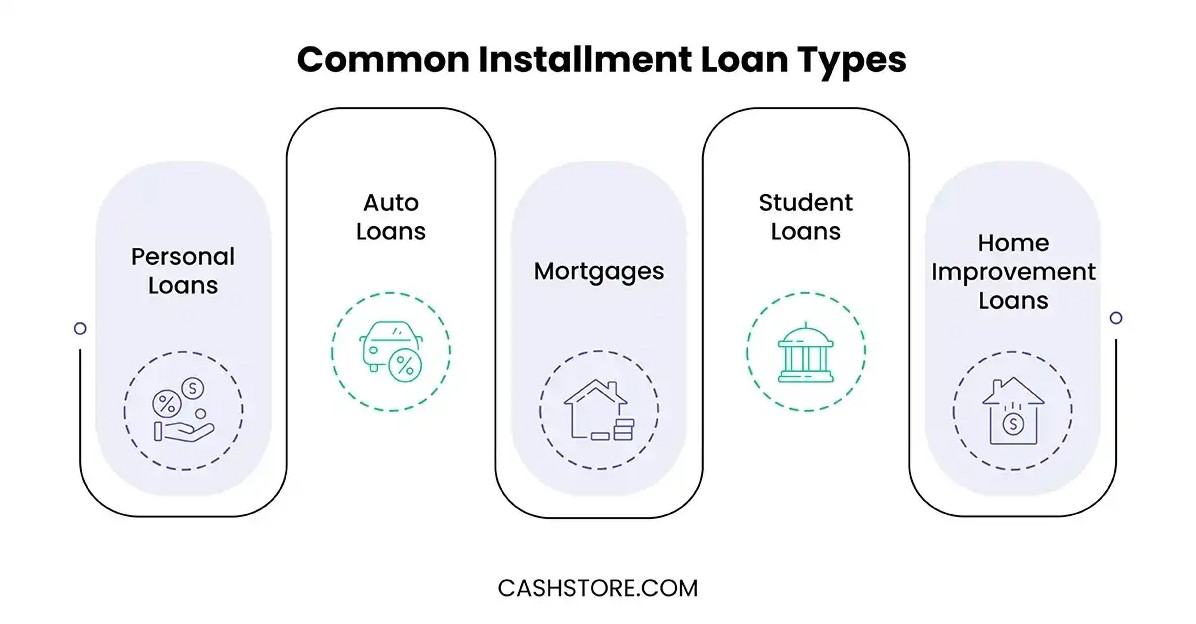Cash Store Blog
What Qualifies as an Installment Loan?
When we’re in need of additional funds, where do we turn? For many, they might look to their credit card. Others may ask to borrow from family members or friends. And others may want to understand their loan options, especially when credit card interest rates are so high. But the world of loans can be confusing.
It can be mind-boggling trying to understand all the loan terms and to know what type of loan to take out for what purpose. In this article, we’ll help you understand what to know about installment loans and why their predictable nature might make them the best choice for your financial needs.

Key Features that Define an Installment Loan
As we mentioned, understanding what sets installment loans apart can help you determine if they’re the right option for your financial situation. Here are some important things to consider:
- Fixed Loan Amount: The borrower is provided with a predetermined sum of money upfront. This amount doesn’t change during the loan period.
- Structured Repayment Schedule: Payments are made on a consistent schedule, such as monthly or biweekly, over a specified time frame. This structure makes it easier to plan ahead.
- Set Interest Rates: Many installment loans come with fixed interest rates, offering predictability in payments. However, some may include variable rates, which can change based on market conditions.
- Defined Loan Term: Installment loans have a clear repayment period with a start and end date, helping borrowers know exactly when the loan will be paid off.


Common Installment Loan Types
The term installment loan is a broad concept that applies to a handful of loans that follow the structure we shared above. Each type of installment loan has certain advantages based on your intended use.
Let’s take a look at the most common installment loan types.
- Personal Loans: Personal loans can be used for consolidating debt, covering large expenses, or addressing unexpected emergencies.
- Auto Loans: Designed for purchasing vehicles, these loans are repaid in fixed terms, such as 36, 48, or 60 months.
- Mortgages: Long-term loans for buying homes, with repayment schedules spanning 15 to 30 years and consistent monthly payments.
- Student Loans: Specifically intended for educational expenses, student loans are repaid in structured installments after graduation.
- Home Improvement Loans: Ideal for funding renovations or repairs, these loans allow for repayment through equal installments over time.
- Buy Now, Pay Later (BNPL) Loans: BNPL loans offer short-term payment plans for retail purchases that often feature no interest when paid according to the schedule.
Installment Loan Benefits
We can’t emphasize enough the benefits of installment loans. And perhaps one of the biggest benefits is the lower interest rate than what you might see with a credit card. The average credit card interest rate in the U.S. is around 24.37%. So, you’re paying a lot in interest. But that’s not the only thing.
As you spend more on your credit card, you start to impact a thing we call utilization. Ideally, your credit card utilization should be no more than 30%. This means that if you have a $10,000 credit limit and have a balance of $5,000, your utilization is 50%. The higher your utilization, the worse it is for your credit score.
That’s where installment loans can really offer you so many benefits. Here’s a recap of the advantages installment loans offer:
- Routine Payments: Payments are set at fixed amounts, making it easier to plan your monthly budget.
- Clear Repayment Terms: With a defined repayment period, you know exactly when your loan will be fully paid off, helping to avoid prolonged debt.
- All-around Use: These loans can be applied to so many unique needs, such as purchasing a home, buying a car, or covering unexpected expenses.


Why Consider an Installment Loan?
Installment loans offer a practical solution for managing expenses with predictable payments, competitive interest rates, and defined repayment terms. Whether you're planning for a significant purchase, consolidating debt, or covering an unexpected cost, these loans provide the structure and flexibility to meet many different financial needs.


